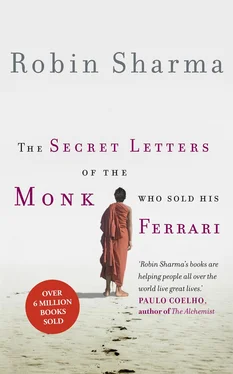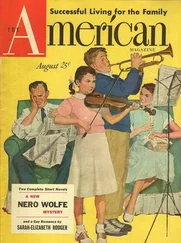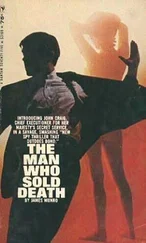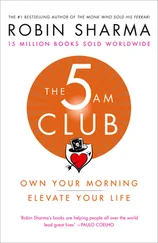THERE HAD BEEN MOMENTS WHEN, moving around Istanbul, I felt as if I were a character in a movie. As if I were seeing the world through a camera, as if every word that came out of my mouth had been written by someone else. It was disorienting, but at the same time refreshing, as if the world was full of possibility. The night I’d floated down the Bosphorus, with the moon above, the water below—I don’t think I’d felt that sense of wonder since I was a child. Julian had said that life was about “becoming.” I was beginning to feel that.
But here, sitting in the Atatürk airport, that Istanbul was slipping quickly into the rearview mirror. I had shut off my phone previous afternoon and, until now, had forgotten to turn it on. It hummed awake, producing an inbox stuffed with semi-hysterical subject lines: “Urgent shipping request”; “QC question”; “XD95 failure”; “Monthly account reports due!”; “Where the Hell R U?” I noticed several texts from Nawang, and I read through those first. It sounded as if the first quality control tests were going well. Then I tackled the ones from David. Just requests for reports I’d already given him, information I had already shared. How much of my time did I waste resending stuff, repeating myself, churning out documents and messages no one ever bothered to read (but were nevertheless due—and submitted—on time, each month, each week)? Forty minutes clicked by before I turned to the messages from Annisha and Adam. Annisha wanted to know if I had arrived in Istanbul safely. Damn. I should have let her know as soon as I had arrived. Adam wanted to tell me about his school play. I quickly typed replies and then called the office, hoping I could catch Nawang.
BY THE TIME I was herded into my seat on the plane, I was thoroughly back in my world. I couldn’t keep ignoring my work, my life, every time I landed in a new place. And if my inbox wasn’t full the next time I turned on my phone, what would that mean? It couldn’t be a good thing. I pulled a few items from my carry-on and then wrestled it into the overhead bin. I could hear the fellow behind me huffing and puffing. A baby was already wailing at the back of the plane. I gritted my teeth and sighed. As I struggled into the kindergarten-sized seats that pass as airline accommodation these days, I could feel the muscles in my neck tightening up. The leather pouch that Julian had given me for the talismans was on a long leather cord. I had put it around my neck, figuring I was less likely to lose it this way. But now I could feel the leather string digging into my skin. The pouch felt unnaturally heavy. Too heavy for the tiny amulet it contained. I clicked my seat belt in place, then took the pouch from under my shirt. I pulled out the little coin and turned it back and forth. The sun and the moon. Yin and yang. Heart and head. Heaven and Earth. Hidden and revealed. I put it in the pouch and dropped the leather bag back under my shirt.
Then I pulled the journal from my jacket pocket. Julian’s note about authenticity was inside. I hadn’t really thought about it since I first read it. In Istanbul, I felt as if I wasn’t really living my life. Or maybe it was more like standing outside my life, looking at it as a stranger might. Now I wondered if what I saw was real. What was my “authentic” self? Who was I, really? I remembered my conversation with Ahmet on the boat. I had told him I was an electrical engineer. A husband. A father. All those things were true, but they could apply to thousands of other men. How would I describe myself if I couldn’t rely on those three labels?
I pulled down the tray table and laid the notebook open on top of it. As I’ve said, I have never been the kind of person who spends a great deal of time on self-reflection. Mostly, I just couldn’t see the point.
I took a pen from my pocket and, at the top of the first page, wrote, “Who am I?” I felt foolish.
I stared at the blank page until the flight attendant broke my trance by offering me a beverage. She served me with a bright smile and then continued down the aisle. I took a sip of coffee and was about to snap the notebook shut, but stopped myself. This was ridiculous. I should be able to answer the question I had posed.
But even after I had finished my coffee, I was staring at a blank page. The flight was almost four hours long. I had promised myself I would write something before it was over. Maybe if I couldn’t describe my “authentic” self, I could think about times in my life when I felt I really knew who I was, when I felt aware of my life, when I felt I was living just as I wanted to rather than how everyone around me suggested I live.
The first thing I wrote was “story time.” It seemed like a strange moment to highlight because it wasn’t a single moment or even a single time. And it was so, so long ago. During all the years of my childhood, we had a family ritual. Once dinner and baths were out of the way, my mother would take my sister and me into one of our bedrooms. The three of us would climb into bed, and Mom would begin to read. When I was tiny it was picture books. Later it was short novels, and then, eventually, long tomes, like Kidnapped or Gulliver’s Travels. We kept that up longer than I would ever have admitted to any of my friends. There was something about those times as a child, however, that acted as a touchstone for me. No matter what had happened during the day, what trouble I had got into, what fights Kira and I had had, what disasters had befallen me at school—in that hour on the bed at night, my mother’s soft voice reverberating in the air, the sound of Dad downstairs banging around the kitchen as he cleaned up, my sister’s contented breathing filling in the spaces—everything fell into place. I knew who I was and where I belonged.
Next I wrote about a more specific memory. “Hiking with Annisha in the Rockies,” I put down. That was just before we got married. Climbing the Grassi Lake trail outside of Canmore, a town in western Canada, we had crossed a small creek. Annisha was following me; I reached out to help her across. When we got to the top of the trail we gazed at the landscape surrounding us, the mountains that encircled us. Then I looked at Annisha. I remember so clearly that I was overcome with the feeling that this improbable place was exactly where I wanted to be, exactly where I should be at this moment.
Of course, back then I couldn’t imagine the feeling that overcame me when Adam was born. That was my third point. I remember thinking, while holding him as Annisha dozed in the hospital bed, that my place in the universe was forever defined by this small baby. I was a father. And I always would be. There was a certainty about it that was sobering and yet comforting.
And finally I wrote, “Fuel-injection design trial run.” It seemed like an oddly technical, professional event to follow Adam’s birth, but there it was. The first independent project I had completed at work. Juan had asked me to take a crack at a new fuel-injection system. “Don’t just tinker with the previous designs,” he said. “You’ve talked to me about doing things differently. So do it. Start from scratch. Rethink the whole thing.”
I worked for months on that design. But it hardly felt like that. I would sit down at my desk in the morning and barely move until it was six p.m. I would get out of my car in the evening, stand in the driveway and wonder how I got there. I was so consumed with ideas, overcome with energy. I got up in the mornings itching to get to the office.
When I eventually presented my drawings and schematics to Juan, he looked thoughtful. “Well,” he told me. “There’s really only one way we can find out if this will work. Let’s build it.”
So we did. Then we ran it. Eventually we put it into a vehicle. And we drove that car. I didn’t sleep at all the night before. Watching the car speed around the test track, I could almost hear my heart ringing, like a chiming clock.
Читать дальше












